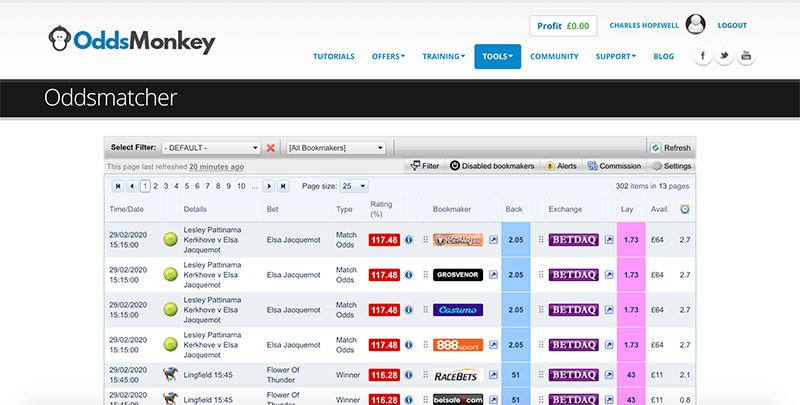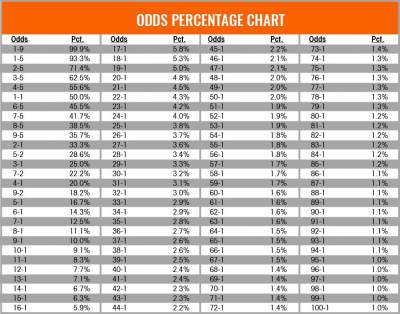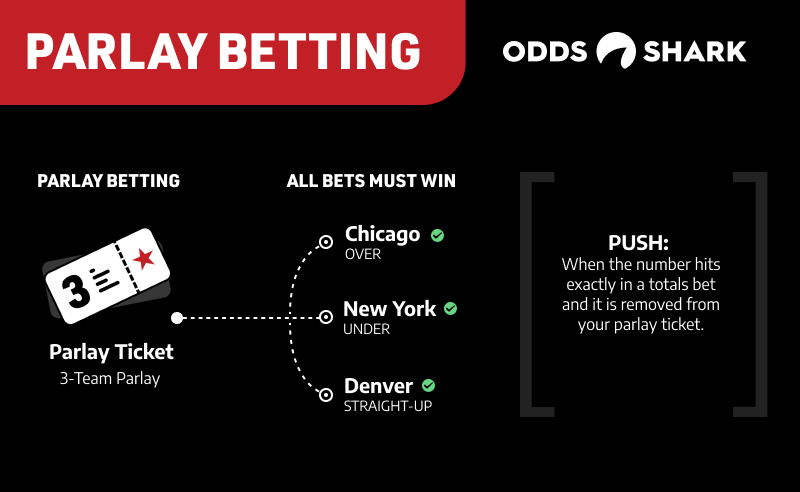- Where to Bet:
This is a simple wager on which team will win a particular game. Odds compilers will weigh up the relative strengths and weaknesses of each team, factoring in head-to-head records, injuries. The NFL Las Vegas Odds are listed in order of rotation and those numbers are generated and produced by the sportsbooks. Above each matchup and rotation is the Time of the game, which is subject to change. All game times are Eastern Standard Time. One of the best features on the NFL Vegas Odds is the Open Line.
How to read Super Bowl 55 Odds
The Kansas City Chiefs wil meet the Tampa Bay Buccaneers in Super Bowl 55 from Raymond James Stadium in Tampa, Florida on Feb. 7, 2021.
The Chiefs opened as -3.5 betting favorites while the Buccaneers are 3.5 underdogs.
After early wagers came in, most operators are holding Kansas City -3 (-120).
If you were to wager on Kansas City -3, you would have to lay 5/6 odds (Bet $120 to win $100) instead of your normal 10/11 juice (Bet $110 to win $100).

The return on Tampa Bay would be even-money (1/1) and a $100 wager would return $100.
The total or over-under on Super Bowl 55 is hovering between 56 and 57 points.
How to read NFL Las Vegas Odds
The point-spread was developed to provide a balance for both teams involved in a contest to entice bettors to potentially back the weaker team and receive points. The two squads in a game are listed with a title, either a favorite or an underdog. The favorite is usually the perceived better team in the game, as backing them means giving up several points.
The favorite is always listed with a minus (-) sign before the point-spread while the underdog is labeled with a plus (+) label.

Ex. Favorite -10, Underdog +10
On the VegasInsider.com odds page, there is another number associated with the favorite and its listed as -10. This number is simply defined as “vig” or what many in the sports betting industry call vigorish. Another common term is called “juice” and it’s technically the price the bettor has to pay on a straight wager.
Ex. Bet $110 to win $100 (10% juice)
Ex. Bet $100 to win $90.91 (10% juice)
It's not uncommon to see other values posted other than -10. Examples seen on the NFL Vegas Odds pages could include -08, -12, -15 and -20. The -10 price is the most common value in the industry while many books offer reduced 'juice odds' and that would fall into the -08 category.
The lower-juice sportsbooks are normally found outside of the state Nevada. If you are in a state where sports betting is legal, please check out our online sportsbook directory to find the best and most secure places to make NFL bets.
Another number that’s posted on the NFL Las Vegas is the total or ‘over/under’ for the specific matchup. If the favorite is designated as the home team, then the total will be listed above and vice versa if the visitors are favorites.
All of the above numbers are listed next to the teams, and before each matchup is a Rotation number. The NFL Las Vegas Odds are listed in order of rotation and those numbers are generated and produced by the sportsbooks. Above each matchup and rotation is the Time of the game, which is subject to change. All game times are Eastern Standard Time.
NFL Open Line
One of the best features on the NFL Vegas Odds is the Open Line. This numbers consists of the first betting line received from one of our Las Vegas or Global Sportsbooks. The opening line varies depending on the sportsbook but it provides a clear-cut rating that the oddsmakers use. If you’re betting on the NFL or any other sport, it’s a great idea to view the open line first.
VI Consensus NFL Line
The VegasInsider.com Consensus NFL Line is just as important as the Open Line and also a key resource on odds platform. The Consensus column could be called a “Median Line” since it shows the most consistent number provided by the sportsbooks on VegasInsider.com. The consensus line will be the same as the open line but once the wagers start coming in, this number is often different than the openers.
How do I bet on the Super Bowl?
Nfl Week 9 Schedule And Gaming Odds
We know that you can bet on the Super Bowl and all of NFL Futures or bet on the NFL Draft at any time of the year, but what’s the process? The future wager or the “Odds to Win” bet on the Super Bowl is correctly selecting a team to win an event that takes place at a later time. A bettor will have his wagered money tied up until there is an outcome and bettors will receive fixed odds when they place the wager. In the case of the Super Bowl, you’re not a winner or loser until you see zeros on the clock in the final game.
Most sportsbooks offer different ways to read to Super Bowl Odds. In the fractional NFL Futures Odds format below, you simply take the odds and multiply by the amount wagered.
Ex. Green Bay (8/1) to win the Super Bowl
The Packers are listed as an 8/1 betting choice to win the Super Bowl. If you wager $100 on Green Bay to win the NFC and they capture the championship, then you would win $800 (8 ÷ 1 x 100). Your online betting account would then credit your account $900, which includes your win and stake ($100).
Gaming Odds
The American Format would see Green Bay listed at +800 and for the Decimal Format, the Packers would be 9.00.
If you are in a state where online betting is legal, we encourage you to check out our sportsbook directory to find the most trustworthy and reputable sites and mobile apps to place your Super Bowl bets.

Events or outcomes that are equally probable have an equal chance of occurring in each instance. In games of pure chance, each instance is a completely independent one; that is, each play has the same probability as each of the others of producing a given outcome. Probability statements apply in practice to a long series of events but not to individual ones. The law of large numbers is an expression of the fact that the ratios predicted by probability statements are increasingly accurate as the number of events increases, but the absolute number of outcomes of a particular type departs from expectation with increasing frequency as the number of repetitions increases. It is the ratios that are accurately predictable, not the individual events or precise totals.
The probability of a favourable outcome among all possibilities can be expressed: probability (p) equals the total number of favourable outcomes (f) divided by the total number of possibilities (t), or p = f/t. But this holds only in situations governed by chance alone. In a game of tossing two dice, for example, the total number of possible outcomes is 36 (each of six sides of one die combined with each of six sides of the other), and the number of ways to make, say, a seven is six (made by throwing 1 and 6, 2 and 5, 3 and 4, 4 and 3, 5 and 2, or 6 and 1); therefore, the probability of throwing a seven is 6/36, or 1/6.
In most gambling games it is customary to express the idea of probability in terms of odds against winning. This is simply the ratio of the unfavourable possibilities to the favourable ones. Because the probability of throwing a seven is 1/6, on average one throw in six would be favourable and five would not; the odds against throwing a seven are therefore 5 to 1. The probability of getting heads in a toss of a coin is 1/2; the odds are 1 to 1, called even. Care must be used in interpreting the phrase on average, which applies most accurately to a large number of cases and is not useful in individual instances. A common gamblers’ fallacy, called the doctrine of the maturity of the chances (or the Monte-Carlo fallacy), falsely assumes that each play in a game of chance is dependent on the others and that a series of outcomes of one sort should be balanced in the short run by the other possibilities. A number of systems have been invented by gamblers largely on the basis of this fallacy; casino operators are happy to encourage the use of such systems and to exploit any gambler’s neglect of the strict rules of probability and independent plays. An interesting example of a game where each play is dependent on previous plays, however, is blackjack, where cards already dealt from the dealing shoe affect the composition of the remaining cards; for example, if all of the aces (worth 1 or 11 points) have been dealt, it is no longer possible to achieve a “natural” (a 21 with two cards). This fact forms the basis for some systems where it is possible to overcome the house advantage.
In some games an advantage may go to the dealer, the banker (the individual who collects and redistributes the stakes), or some other participant. Therefore, not all players have equal chances to win or equal payoffs. This inequality may be corrected by rotating the players among the positions in the game. Commercial gambling operators, however, usually make their profits by regularly occupying an advantaged position as the dealer, or they may charge money for the opportunity to play or subtract a proportion of money from the wagers on each play. In the dice game of craps—which is among the major casino games offering the gambler the most favourable odds—the casino returns to winners from 3/5 of 1 percent to 27 percent less than the fair odds, depending on the type of bet made. Depending on the bet, the house advantage (“vigorish”) for roulette in American casinos varies from about 5.26 to 7.89 percent, and in European casinos it varies from 1.35 to 2.7 percent. The house must always win in the long run. Some casinos also add rules that enhance their profits, especially rules that limit the amounts that may be staked under certain circumstances.
Many gambling games include elements of physical skill or strategy as well as of chance. The game of poker, like most other card games, is a mixture of chance and strategy that also involves a considerable amount of psychology. Betting on horse racing or athletic contests involves the assessment of a contestant’s physical capacity and the use of other evaluative skills. In order to ensure that chance is allowed to play a major role in determining the outcomes of such games, weights, handicaps, or other correctives may be introduced in certain cases to give the contestants approximately equal opportunities to win, and adjustments may be made in the payoffs so that the probabilities of success and the magnitudes of the payoffs are put in inverse proportion to each other. Pari-mutuelpools in horse-race betting, for example, reflect the chances of various horses to win as anticipated by the players. The individual payoffs are large for those bettors whose winning horses are backed by relatively few bettors and small if the winners are backed by a relatively large proportion of the bettors; the more popular the choice, the lower the individual payoff. The same holds true for betting with bookmakers on athletic contests (illegal in most of the United States but legal in England). Bookmakers ordinarily accept bets on the outcome of what is regarded as an uneven match by requiring the side more likely to win to score more than a simple majority of points; this procedure is known as setting a “point spread.” In a game of American or Canadian football, for example, the more highly regarded team would have to win by, say, more than 10 points to yield an even payoff to its backers.
Unhappily, these procedures for maintaining the influence of chance can be interfered with; cheating is possible and reasonably easy in most gambling games. Much of the stigma attached to gambling has resulted from the dishonesty of some of its promoters and players, and a large proportion of modern gambling legislation is written to control cheating. More laws have been oriented to efforts by governments to derive tax revenues from gambling than to control cheating, however.